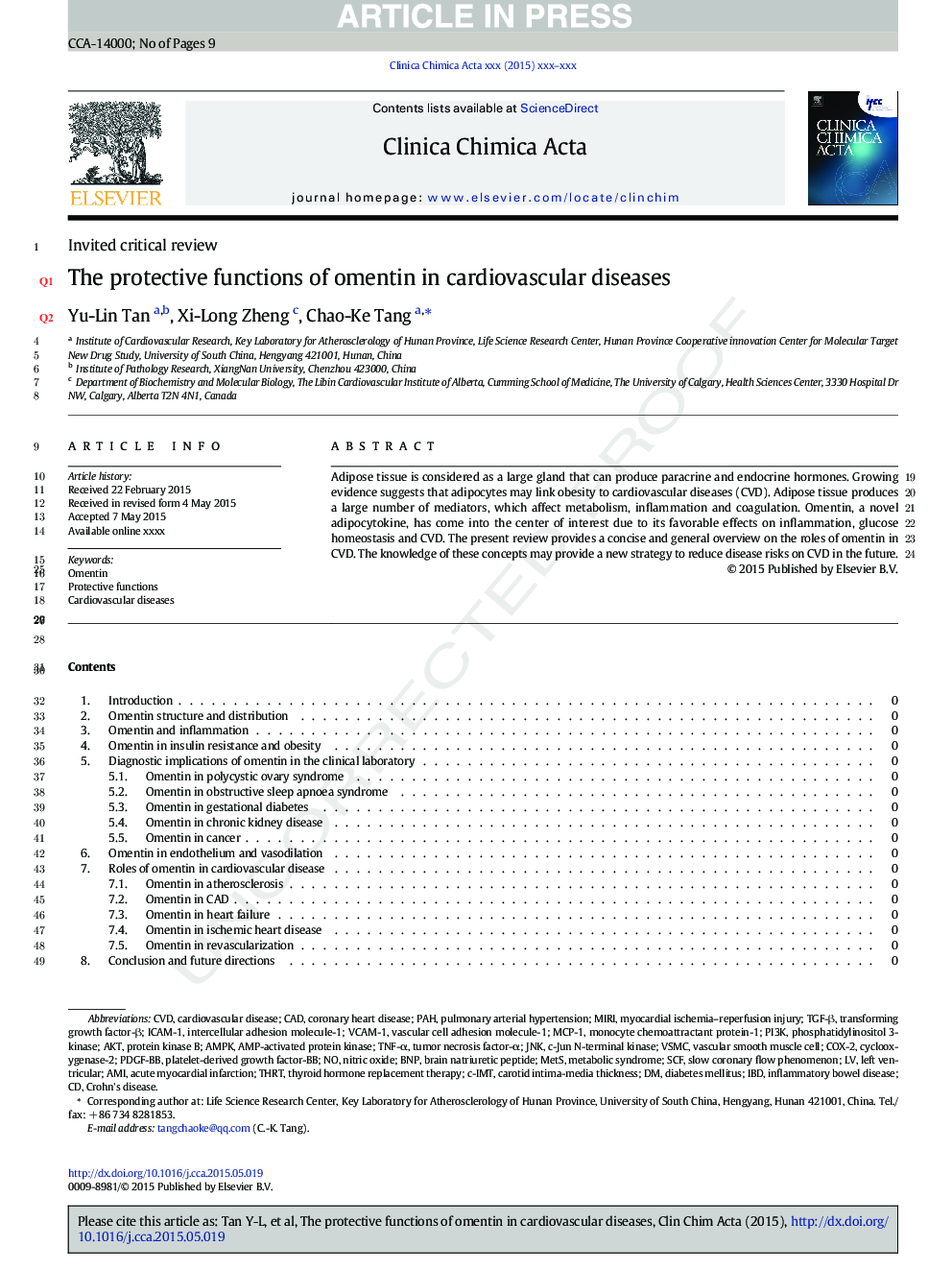| Article ID | Journal | Published Year | Pages | File Type |
|---|---|---|---|---|
| 8310572 | Clinica Chimica Acta | 2015 | 9 Pages |
Abstract
Adipose tissue is considered as a large gland that can produce paracrine and endocrine hormones. Growing evidence suggests that adipocytes may link obesity to cardiovascular diseases (CVD). Adipose tissue produces a large number of mediators, which affect metabolism, inflammation and coagulation. Omentin, a novel adipocytokine, has come into the center of interest due to its favorable effects on inflammation, glucose homeostasis and CVD. The present review provides a concise and general overview on the roles of omentin in CVD. The knowledge of these concepts may provide a new strategy to reduce disease risks on CVD in the future.
Keywords
MCP-1TGF-βMIRIOmentinC-IMTVCAM-1VSMCSCFBNPIBDICAM-1COX-2PAHPDGF-BBAMPKPI3KJnkAmIAMP-activated protein kinasec-Jun N-terminal kinaseMyocardial ischemia–reperfusion injuryAktLeft ventricularcoronary heart diseasecardiovascular diseaseCardiovascular diseasesCrohn's diseaseInflammatory bowel diseasetransforming growth factor-βtumor necrosis factor-αDiabetes mellitusCVDVascular smooth muscle cellMetabolic syndromeAcute myocardial infarctionCyclooxygenase-2Carotid intima-media thicknessCADplatelet-derived growth factor-BBTNF-αPhosphatidylinositol 3-kinasePulmonary arterial hypertensionMETSintercellular adhesion molecule-1vascular cell adhesion molecule-1Nitric oxidemonocyte chemoattractant protein-1protein kinase Bbrain natriuretic peptide
Related Topics
Life Sciences
Biochemistry, Genetics and Molecular Biology
Biochemistry
Authors
Yu-Lin Tan, Xi-Long Zheng, Chao-Ke Tang,
